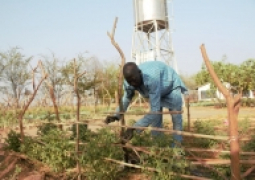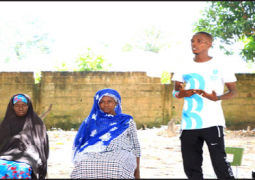
The Gambia is in urgent need to respond to the political transition after 22-year regime.
The political instability worsened the economy in 2017, which was already in a critical situation under the former regime and with the 2016 Ebola crisis, resulted in -0.84% GDP per capita growth in 2016.
It also affected the already-high unemployment rate, 29.8% for the total population and as high as 43.9% for the youth is in 2017.
The project applies the Employment-Intensive Investment Programme (EIIP) approach and gives a specific focus on employment opportunities in infrastructure construction works, which can provide a large number of employment opportunities immediately for both skilled and unskilled people.
The project also ensures to select infrastructures which directly contribute to the agriculture, tourism, or fishery sector, which are the drivers of the economic growth, and to promote the use of locally available materials.
It also considers making the project impact sustainable by providing skills training and entrepreneurship support.
The project underlines creating decent employment by promoting occupational safety and health (OSH) as well as equality and mutual understanding through encouraging inclusiveness of returnees and women.
Project Strategy Background With insufficient job opportunities, the number of Gambian migrants leaving the country via irregular means has not abated. Simultaneously, more than 3,000 have been assisted to return to The Gambia by IOM, which is 6 times larger than originally expected.
Responding to these urgent needs, the Japan-funded project will generate employment opportunities in infrastructure construction works to support the Gambian society to build sustained peace.
The project, from Apr 2018 – Apr 2019, will maximize employment opportunities through employment-intensive investment programmes, building on the ILO’s 40-year long experience in that field.
The project applies the Employment-Intensive Investment Programme (EIIP) approach and gives a specific focus on employment creation in infrastructure construction works, which can provide a large number of employment opportunities immediately for both skilled and unskilled people.
The project also ensures to select infrastructures which directly contribute to the agriculture, tourism, or fishery sector, which are the drivers of the economic growth, and to promote the use of locally available materials. It also considers making the project impact sustainable by providing skills training and entrepreneurship support.
The project underlines creating decent employment by promoting occupational safety and health (OSH) as well as equality and mutual understanding through encouraging inclusiveness of returnees and women.
Source-Youth News





